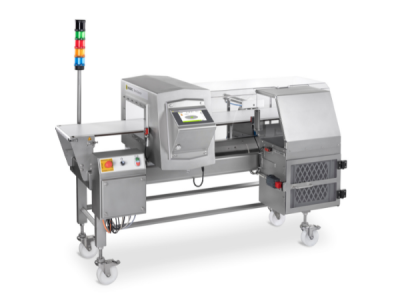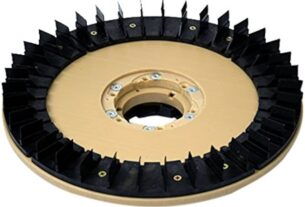The food industry is an ever-evolving ecosystem, with new challenges arising every day. One of the most significant concerns in the food processing and manufacturing industry is the possibility of foreign objects contaminating the final product. Metal detectable tools have become a critical component in ensuring food safety and quality standards.
The use of metal detectable tools in the food industry has been on the rise due to their ability to detect any metal fragments that may have found their way into a food product. This technology has helped reduce the risk of contamination, which can lead to costly recalls, lawsuits, and damage to a company’s reputation.
In this article, we will discuss what metal detectable tools are, how they work, their benefits, and why they are essential for maintaining food safety and quality standards.
What Are Metal Detectable Tools?
Metal detectable tools are specially designed tools that are made from materials that can be easily detected by metal detectors used in food processing facilities. These tools are typically made from materials such as stainless steel or plastic infused with metallic particles.
The metal particles embedded in these tools allow them to be detected by metal detectors if they break off or go missing during the production process. The detection of these lost pieces helps prevent them from being inadvertently included in the final product, reducing the risk of contamination.
How Do Metal Detectable Tools Work?
Metal detectable tools work by utilizing magnetic fields generated by metal detectors. When a metal fragment passes through these fields, it creates an electric current that is detected by the metal detector.
The sensitivity of the metal detector can be adjusted to detect even tiny pieces of metal. This means that any lost pieces of a metal-detectable tool can be identified and removed before they contaminate any products.
Benefits of Metal Detectable Tools
1. Increased Food Safety: The use of metal detectable tools significantly reduces the risk of metal contamination in food products, ensuring that they are safe for consumption.
2. Cost-Effective: While the initial cost of metal detectable tools may be higher than traditional tools, their use can save money in the long run by reducing the likelihood of costly recalls and lawsuits resulting from contaminated products.
3. Compliance with Industry Standards: Many regulatory bodies require food processing facilities to use metal detectable tools to ensure compliance with industry standards.
4. Reduced Downtime: The timely detection and removal of lost metal fragments using metal detectable tools can reduce downtime on production lines, saving time and money for the company.
Why Are Metal Detectable Tools Essential for Maintaining Food Safety and Quality Standards?
The ingestion of foreign objects such as metal fragments can cause severe injuries or even death. This is why it is essential to have measures in place to prevent this from happening. Metal detectable tools provide an added layer of protection against this type of contamination in the food industry.
In addition to protecting consumers, using metal detectable tools also safeguards a company’s reputation and bottom line. A recall due to contaminated products can result in significant losses for a company, both financially and in terms of its brand image.
Conclusion
The use of metal detectable tools has become essential in maintaining food safety and quality standards. These specially designed tools help prevent contamination by detecting lost pieces before they make their way into the final product.
While the initial cost may be higher than traditional tools, their use can ultimately save companies time and money by reducing the likelihood of costly recalls and damage to their brand image.
As a responsible member of the food industry, investing in metal detectable tools is not only good business sense but also a crucial step towards ensuring consumer safety and maintaining industry standards.
References:
1. “Metal Detectables – What They Are And Why You Need Them.” Detectamet Ltd., www.detectamet.co.uk/metal-detectables-what-they-are-and-why-you-need-them/.
2. “Metal Detection in the Food Industry.” Bunting Magnetics Co., www.buntingmagnetics.com/metal-detection-in-the-food-industry.
3. “Metal Detectable Tools: A Must-Have for Food Manufacturers.” SafetyCulture, 24 Aug. 2020, safetyculture.com/news/metal-detectable-tools-a-must-have-for-food-manufacturers/.




